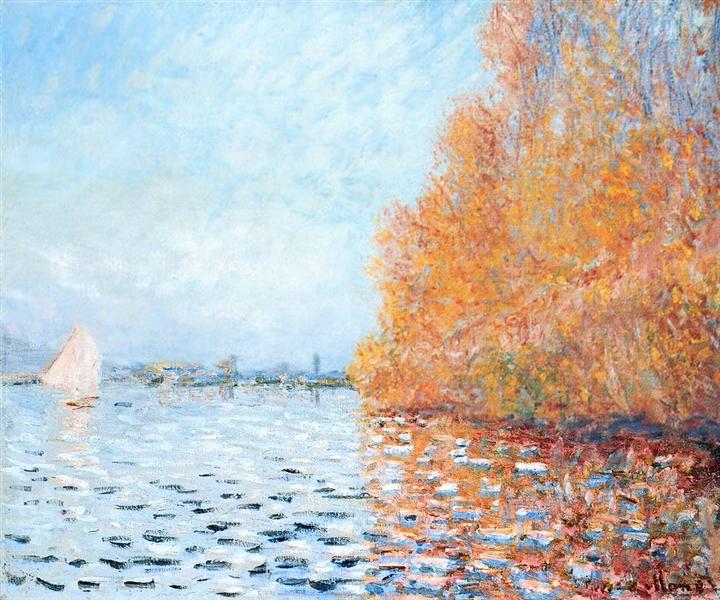描述
印象派运动的中心人物克劳德·莫奈(Claude Monet)在1873年的《阿根廷埃尔·塞纳(El Sena in Argenteuil)》中展示了一部熟练捕捉法国自然环境的日常生活和美丽的作品。这张照片是印刷期的一部分,也是莫奈的技术实验,正处于他职业生涯的转折点,现代生活的场景和光的效果开始收集占主导地位的角色。
乍一看,该组合物在宽阔而清晰的地平线上结构,塞纳河占据了中央平面的主导地位。视角向底部打开,软波的起伏反映了天空,尽管以各种蓝色和白色的阴影绘制,但表明了发光和变化的氛围。在这种光明的解释中,莫奈设法捕捉了天气的本质和当下的气氛,这会影响景观感知的变量。莫奈(Monet)表征的宽松而充满活力的笔触使观众不仅可以看到水,而且可以感受到流入其中的生活。
所使用的颜色具有轻松的光彩,突出了与河流接壤的植被中不同的绿色阴影,以及赋予水的金色和银色反射。忠于其印象派技术的莫奈(Monet)避免了定义的轮廓和精确形式,而是选择了一种更直观和更感官的方法。大自然与天堂元素与水的结合表明,它们之间的相互联系强调了自然环境的和谐。
尽管在“塞纳河中的塞纳河”中,角色很少,但前景中有两条小船。这些人物的方法(我们可以考虑该地区的居民)是微妙的,似乎是在漂浮,几乎就像它们只是景观的一部分。这些社会生活中的这些元素在水中的代表增加了一个隐含的故事,引起了沉思。我们面对的是巴黎人的生活,这种生活转变为水生环境的宁静,这是19世纪资产阶级的现代性和休闲时代的代表。
这项作品是莫奈在阿根廷绘制的一系列风景的一部分,该景观与艺术家有个人和情感上的联系,他们生活在他一生的几个阶段。这个小港口成为探索您对水及其与环境相互作用的轻型游戏兴趣的理想场所。莫奈(Monet)不仅描绘了景观,而且通过其颜色和光线的出色使用将其变成了体验体验。
“ sena in Argenteuil”是一部作品,除了简单的代表外,它表达了艺术时期的本质,在艺术史上,感知和感官体验扮演着领导角色。这幅画为莫奈(Monet)作为印象派主义的艺术家和先驱提供了一个窗口,这种风格不仅捕捉了可见的,而且还探索了环境的情感和大气影响。目前,这项工作继续引起共鸣,邀请观众对自然,人类和感知之间的关系进行反思。
KUADROS ©,墙上的著名油漆。
手工制作的油画,具有专业艺术家的质量和独特的印章 KUADROS ©.
图片繁殖服务具有满意保证。如果您对绘画的复制品不完全满意,我们将100%退还您的钱。

